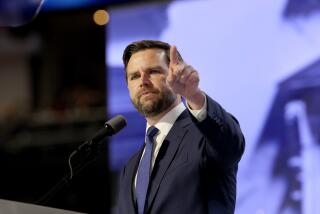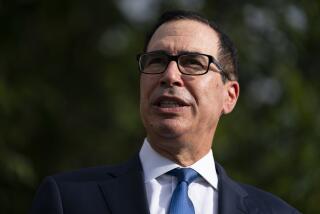Will ‘Facebook Friends’ seize the mantle of the ‘PayPal Mafia’?
As Facebook shoots toward a $100-billion initial public stock offering, the race is already on to find the next Facebook. And the smart money in Silicon Valley is betting one group has the inside track: Facebook’s early employees.
While building the world’s largest social network, they built a social network of their own. Now that they have parted company with Facebook to seek their own fortunes, they have a competitive edge: each other.
These ambitious young entrepreneurs call on one another for money and advice, sit on each other’s boards and hook up to celebrate birthdays and weddings. Collectively their companies have raised tens of millions of dollars and are among the most sought after in Silicon Valley.
The members of this powerful clique include Facebook co-founder Dustin Moskovitz, who at 27 is the world’s youngest billionaire. He has teamed with Facebook alumnus Justin Rosenstein on Asana, which makes online software that helps people work together more effectively. Adam D’Angelo, Mark Zuckerberg’s 27-year-old high school chum who was the company’s first chief technology officer, is working with another Facebook pal Charlie Cheever on Quora, a question-and-answer website whose aim is to connect people to information.
These “Facebook Friends” could be on the verge of seizing the mantle of the “PayPal mafia,” a high-profile band of executives who sold the payments company to EBay Inc. and went on to build and back some of the hottest companies in Silicon Valley, including Yelp, YouTube and Facebook. Facebook’s first Silicon Valley investor was Peter Thiel of Founders Fund, who was PayPal’s chief executive and co-founder.
“A lot of these guys are coming out of Facebook with a lot of money, enough that they could retire. But they are not. They are really young, and they have an idealistic view of the world and their own role in that world,” said Joe Green, president and co-founder of NationBuilder.
Green lived in the same Harvard dorm with Zuckerberg. During their sophomore year, Green helped Zuckerberg create “Facemash,” which let users rate the attractiveness of Harvard coeds and landed both in trouble with school administrators. His dad, a UCLA professor, advised him not to participate in any future projects with Zuckerberg. So when Zuckerberg asked if he wanted to run the business of Facebook, Green turned him down. Green’s stake in the company would have been worth billions today.
Still, Green received some Facebook stock for his role as an adviser to Facebook and he met Facebook’s former president Sean Parker, with whom he founded Causes, which helps users donate – and get their friends to donate – to charity. And recently when he co-founded Internet political organizing site Nation Builder with Jim Gilliam, Parker joined the board, all of Green’s Facebook pals invested and he had to turn away money from others.
“It’s a high-class problem,” Green said.
Scott Marlette, one of Facebook’s earliest employees, moved to Los Angeles after leaving the social networking giant in 2010. He hooked up with Doug Hirsch, a friend from Facebook. They hit on the idea of creating a website and iPhone app that would compare the prices of prescription drugs called GoodRx.
“Everyone has this crazy shared experience working at this really intense company. You get very close because of that,” Marlette said. “You have this feeling you are going to know these people for the rest of your life. I don’t know if in other jobs people look at their coworkers that way.”
Read the full story here.
RELATED:
Facebook’s Sheryl Sandberg has a talent for making friends
Facebook settles into new home just days before IPO filing
Ex-Facebook insiders building next wave of Silicon Valley firms
More to Read
Inside the business of entertainment
The Wide Shot brings you news, analysis and insights on everything from streaming wars to production — and what it all means for the future.
You may occasionally receive promotional content from the Los Angeles Times.










